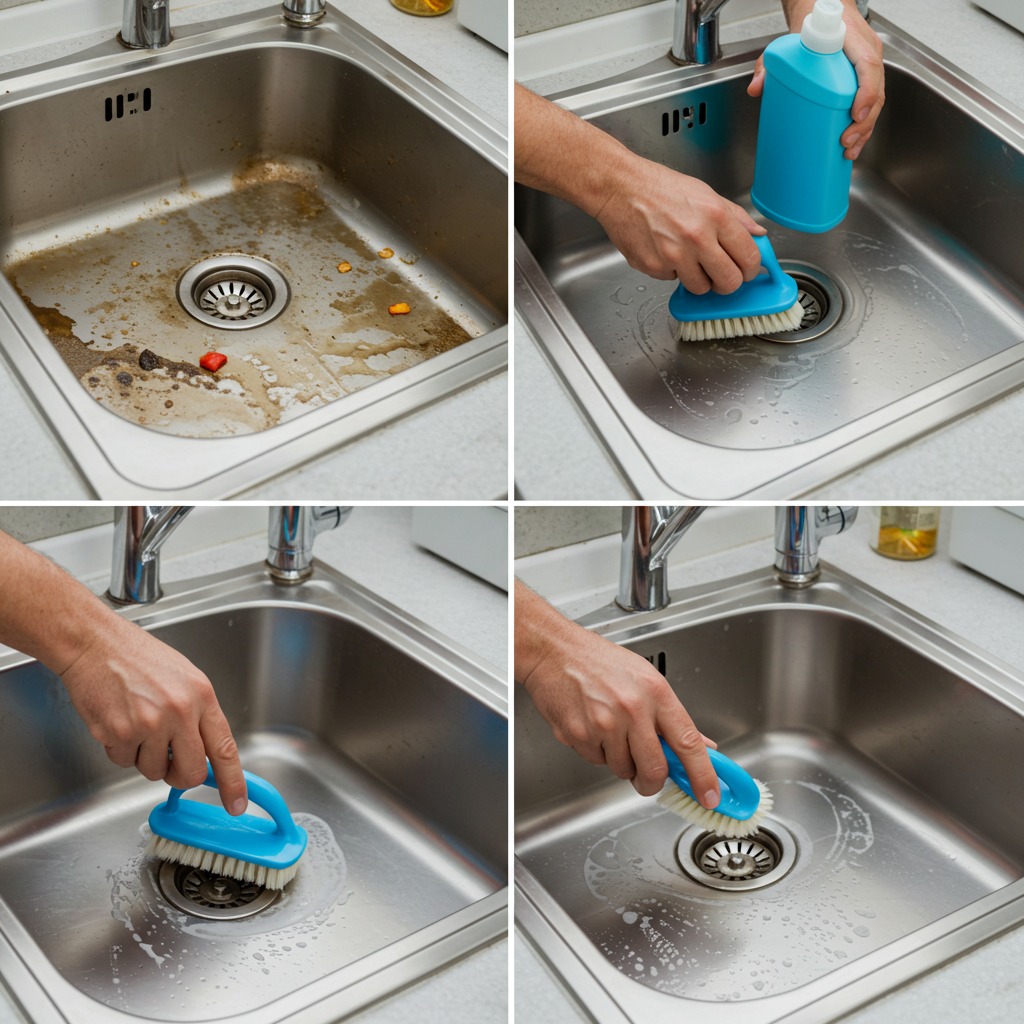A stainless steel sink is a beautiful and practical addition to any kitchen. Its sleek, modern appearance complements most kitchen designs, and its durability makes it a favorite for homeowners. However, over time, even the sturdiest stainless steel sinks can lose their shine. Hard water stains, lime scale deposits, and everyday dirt can leave the surface looking dull and unkempt. While many people resort to commercial cleaners filled with harsh chemicals, there’s a natural and effective way to restore your sink’s brilliance using simple household ingredients.
Apply the Paste: Spread the paste over stained or dull areas of the sink. Allow it to sit for about ten minutes to break down grime and deposits.
Scrub and Rinse: Using a soft cloth or sponge, gently scrub the sink in circular motions. After scrubbing, rinse thoroughly with warm water to remove all traces of baking soda.
Dry and Polish: Finally, dry the sink completely with a soft cloth or dish towel. Drying prevents water spots and helps restore the sink’s natural shine.
Alternative Natural Cleaning Methods
In addition to baking soda, several other natural ingredients can help remove tough lime scale, grease, and grime while restoring shine:
1. White Wine Vinegar: Vinegar is a versatile cleaning agent known for its ability to dissolve mineral deposits and polish stainless steel. To use, pour a small amount of white wine vinegar onto a microfiber cloth and wipe the sink, focusing on stained or hard water-affected areas. Rinse thoroughly with warm water and dry completely to avoid streaks.
. Lemon: Lemon juice is naturally acidic and works wonders on lime scale and water spots. Squeeze the juice of two lemons into one liter of water and use a soft cloth to rub it over the sink’s surface. Scrub gently, rinse with warm water, and dry with a soft cloth. Lemon also leaves a fresh, clean scent behind.
3. Marseille Soap: Known for its gentle yet effective cleaning properties, Marseille soap is another excellent option. Dissolve a few tablespoons of Marseille soap flakes in half a liter of warm water. Use a cloth soaked in this solution to clean the sink, focusing on rings of lime scale or stubborn dirt. After scrubbing, rinse thoroughly and dry to prevent future buildup.
4. Olive Oil: Olive oil isn’t just for cooking—it can also be used to polish stainless steel. Apply a few drops of olive oil to a soft cloth and rub it over the sink’s surface in circular motions. This helps restore shine and creates a protective layer that repels water spots. For an extra cleaning boost, combine olive oil with a small amount of vinegar for an effective, eco-friendly cleaning solution.
Avoid Abrasive Tools: Never use steel wool or harsh scrubbing pads, as these can scratch and damage the sink’s surface. Stick to soft cloths, sponges, or non-abrasive brushes.

A shiny stainless steel sink, the cleaning company’s solution: incredible
[rotated_ad]
